Last updated on December 10th, 2025 at 05:00 pm
Let me take you on a journey through the wild and wondrous world of Greek mythology! Imagine a time when gods played chess with humans, monsters roamed free, and heroes took on quests that put today’s reality shows to shame.
Greek mythology is rich with fascinating and famous tales of love, power, and heroism that have captivated people for centuries.
These stories served a dual purpose: they were created to explain natural phenomena and to encapsulate the moral values of their time. The sufferings or achievements of their protagonists stood as examples of moral behavior — either to be avoided or emulated. They were the final touch that bound gods and mortals together under invisible moral laws.
Alright, my fellow myth enthusiasts, hold onto your laurel wreaths because we’re about to take a grand tour through the wild and woolly world of Greek mythology. And trust me, it’s a ride that’s more epic than an ancient poetry slam, we’re diving into a treasure trove of stories that have kept generations wide-eyed and eager for more.
Here are some of the most well-known tales:
Perseus and Medusa
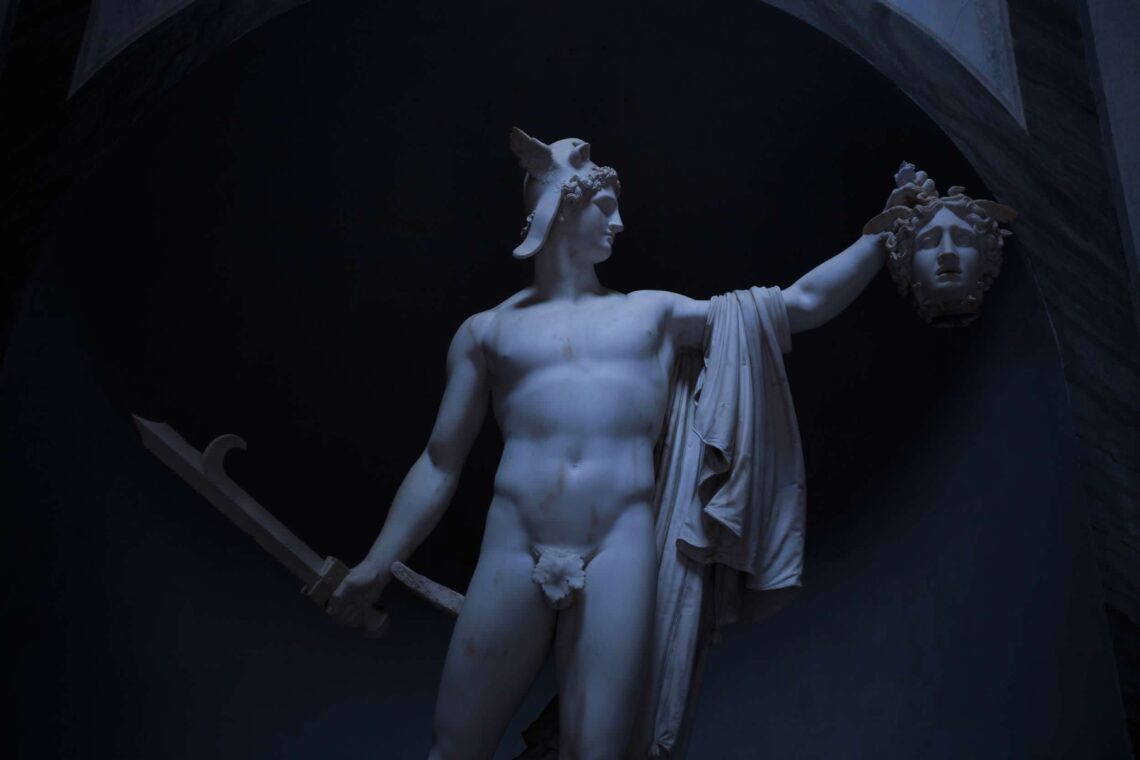

Perseus, half-human and half-god, was tasked with a legendary mission: slay Medusa, the snake-haired monster whose gaze could turn anyone to stone. Armed with gifts from the gods — a reflective shield, winged sandals, and a cap of invisibility — he cleverly defeated Medusa and used her head as a powerful weapon against his enemies.
A story of bravery, divine gifts, and epic monster-slaying, Perseus’ adventures showcase the thrills of Greek mythology.
Read the full story → Perseus: Slayer of Medusa and Savior of Andromeda
Theseus and the Minotaur
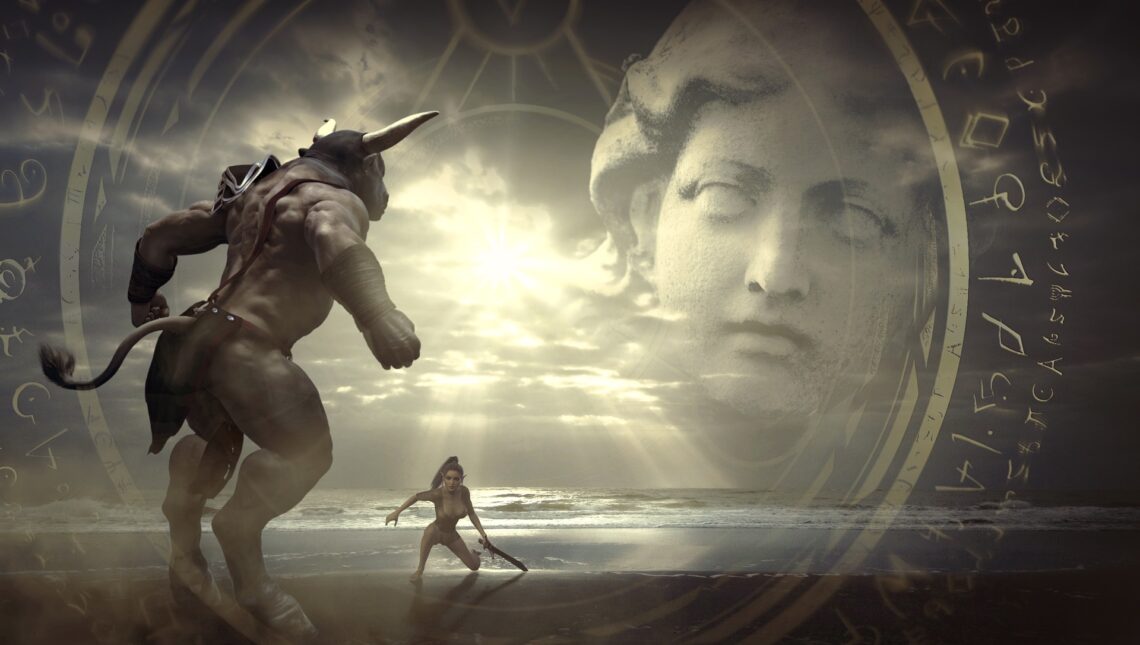

Theseus, the brave Greek hero, took on the deadly Minotaur hidden in King Minos’ labyrinth. With Ariadne’s magical thread as his guide, he navigated the maze, confronted the half-bull, half-human monster, and emerged victorious.
A thrilling story of courage, cleverness, and mythic adventure, Theseus’ triumph shows how heroes in Greek mythology combined wits and bravery to face impossible challenges.
Read the full story → Theseus and the Minotaur: Hero vs the Beast of Crete
Pandora’s Box


Pandora, the first woman in Greek mythology, was given a mysterious box with one rule: never open it. Curiosity got the better of her, and when she lifted the lid, every misery of the world escaped—sickness, sorrow, and all the troubles of humankind.
But at the very bottom of the box, one thing remained: Hope. Even in a world filled with hardship, this final gift ensured that humanity would never face darkness without a light to hold onto.
Read the full story → Pandora’s Box
Orpheus and Eurydice
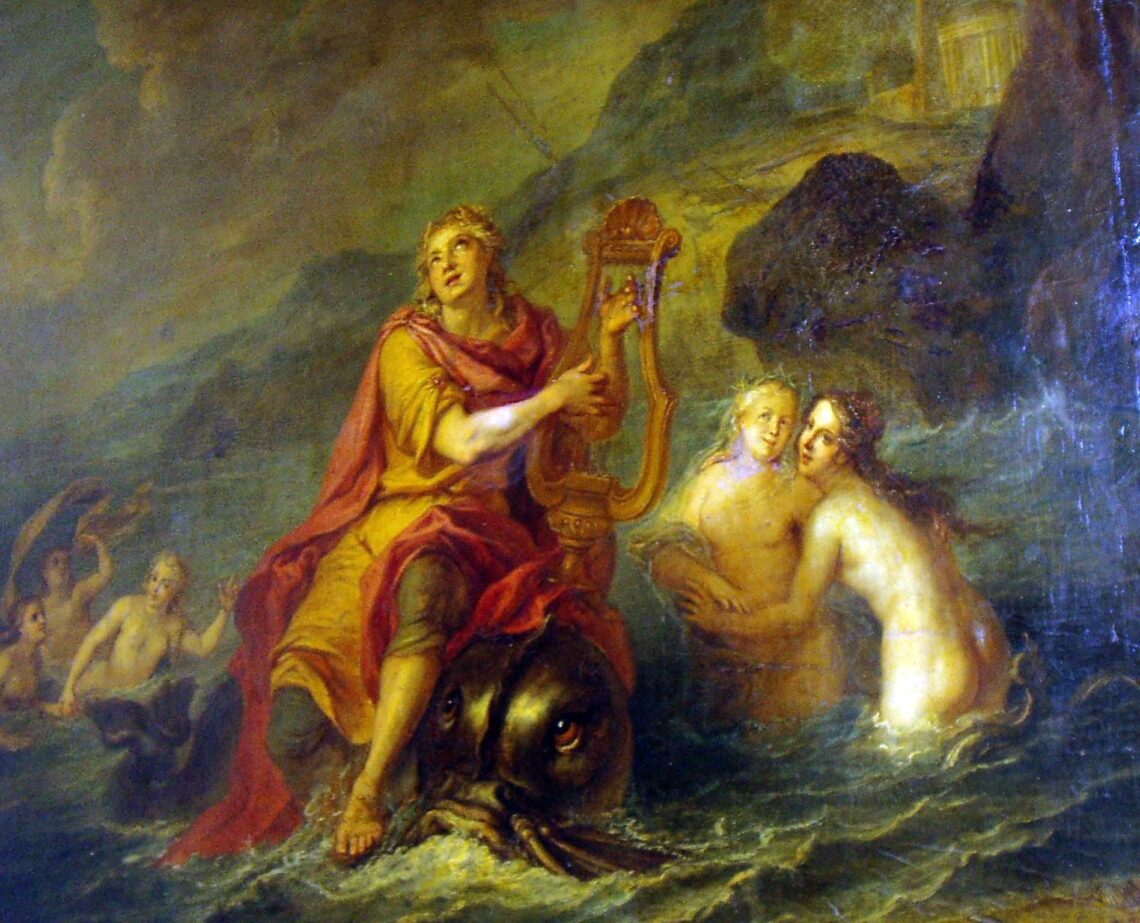

Orpheus, the greatest musician of myth, fell deeply in love with Eurydice. Their happiness was short-lived: she died soon after their wedding, leaving Orpheus shattered. Refusing to accept her loss, he descended into the Underworld, and his music was so moving that even Hades relented. Eurydice could return—but only if Orpheus walked ahead without looking back.
Just before reaching the surface, doubt overcame him. He turned—and Eurydice vanished forever. Their story remains one of Greek mythology’s most tragic reminders that even the purest love can slip away with a single moment of hesitation.
Read the full story → Orpheus and Eurydice: A Tale of Love, Loss, and the Limits of Mortal Power
Eros and Psyche
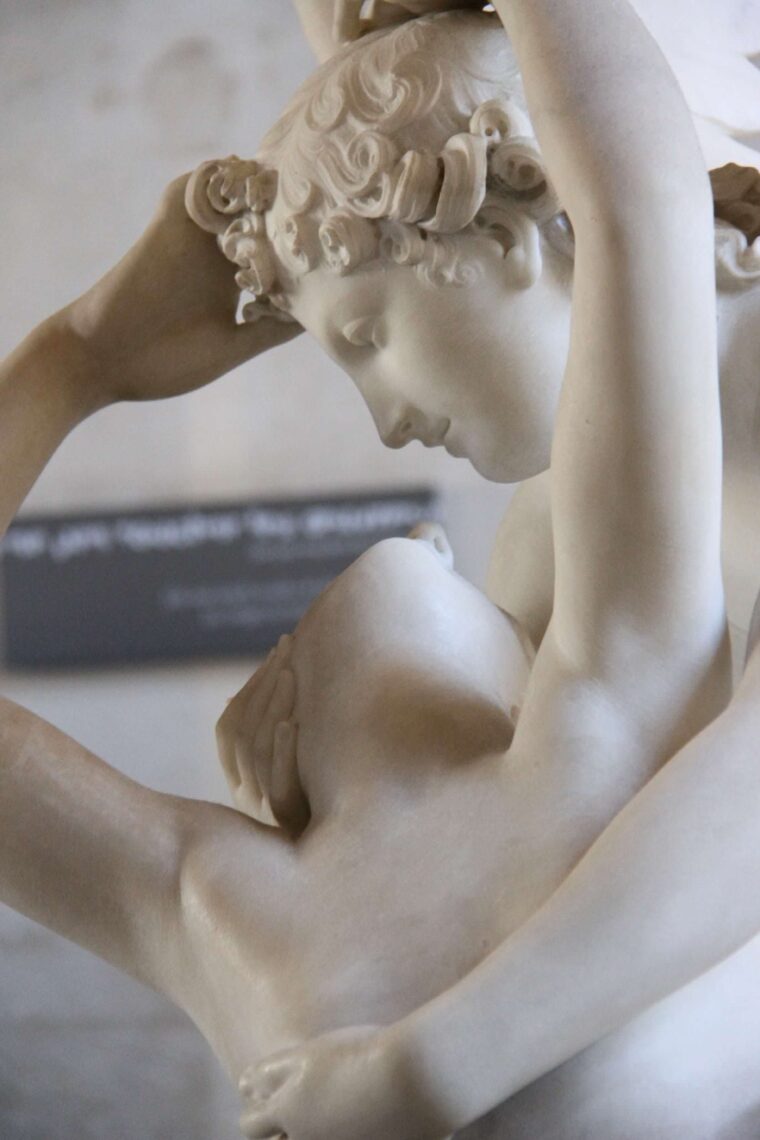

Psyche’s beauty was so irresistible that it stirred jealousy even in Aphrodite. Sent to ruin her, Eros instead fell in love and carried Psyche to a hidden palace where he visited her only in darkness. Their happiness held—until curiosity won. Psyche lit a lamp to see her mysterious husband, breaking his sole condition, and Eros fled.
Determined to win him back, Psyche faced a series of impossible trials set by Aphrodite, each more punishing than the last. Her endurance and devotion eventually moved even the gods. Reunited at last, Psyche was granted immortality, and she and Eros became one of mythology’s most enduring symbols of love that survives every test.
Read the full story → Eros and Psyche: A Timeless Tale of Love, Trials, and Transformation
A small notification: Eros is the Greek counterpart of the Roman god Cupid, and Psyche is indeed the Greek word for “Soul.”
Prometheus and Pandora
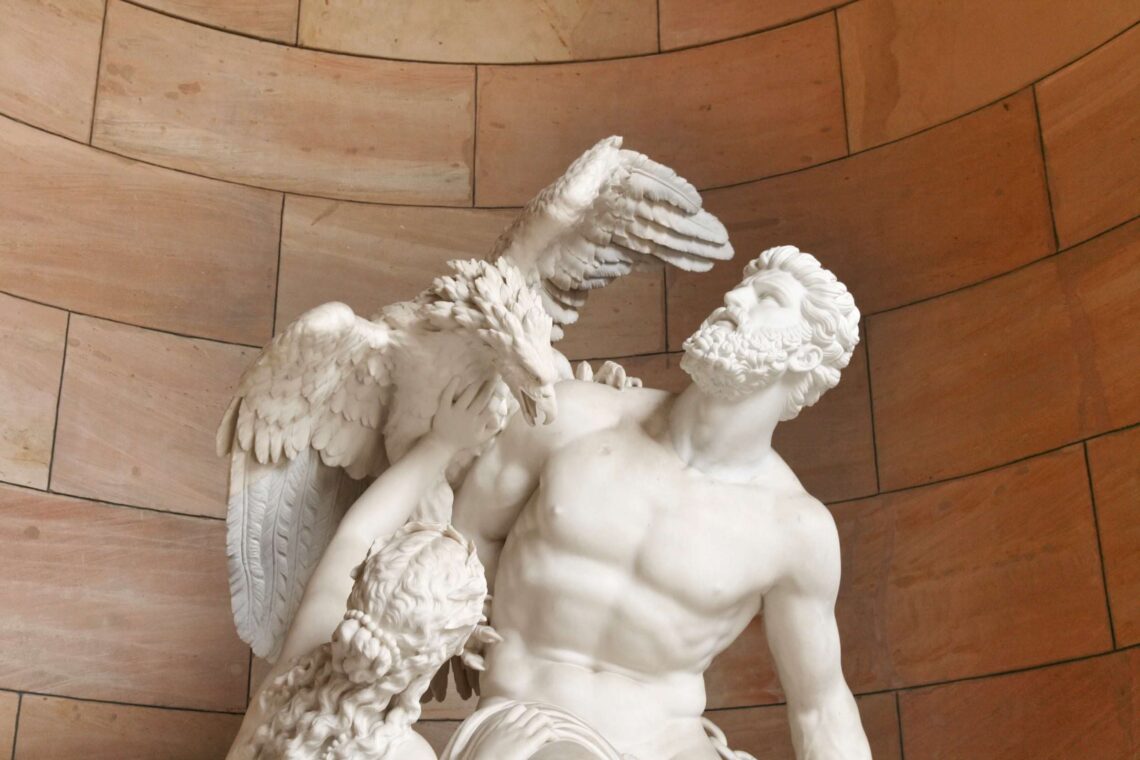

Prometheus, the clever Titan, defied Zeus by stealing fire and giving it to humanity, gifting mortals light, warmth, and the beginnings of civilization. Enraged, Zeus punished him by chaining him to a rock where an eagle consumed his liver each day.
But Zeus didn’t stop there. To punish humanity itself, he created Pandora, the first woman, and sent her to Prometheus’ brother, Epimetheus. Despite warnings, Epimetheus accepted her, and Pandora eventually opened the sealed jar entrusted to her.
From it escaped all the world’s hardships: sickness, toil, sorrow, and countless miseries. Only Hope remained inside.
Together, the stories of Prometheus and Pandora explain a single mythic truth: humans gained fire and progress through defiance — and inherited suffering through curiosity.
Read the full story → Prometheus and Pandora
Perseus and Andromeda
After slaying Medusa, Perseus rescues Andromeda from a sea monster sent by Poseidon. This heroic adventure blends divine help and mortal courage for a classic tale of rescue and reward.
Read the full story → Perseus: Slayer of Medusa and Savior of Andromeda
Daphne and Apollon
Apollo, the god of music and prophecy, falls deeply in love with the nymph Daphne. Despite his pursuit, Daphne refuses him and prays to be saved. In answer, she is transformed into a laurel tree, leaving Apollo heartbroken but forever honoring her with the laurel crown.
A story of unrequited love, divine intervention, and transformation — one of Greek mythology’s most poignant tales.
Read the full story → Daphne and Apollon
Niobe’s Hubris
Niobe brags about having more children than the goddess Leto, angering Apollo and Artemis, who punish her by killing them all. A cautionary tale about pride and divine retribution.
The Judgment of Paris
Prince Paris must decide which goddess — Hera, Athena, or Aphrodite — is the fairest. His choice of Aphrodite sparks a chain of events that ultimately leads to the Trojan War, showing how a single decision can change the course of history.
Read the full story → The Judgment of Paris
Hades and the Abduction of Persephone
Hades kidnaps Persephone, daughter of Demeter, making her queen of the Underworld. This myth explains the changing seasons as Demeter mourns her lost daughter.
Read the full story → Persephone and Hades: The Tale of the Queen of the Underworld
Daedalus and Icarus
Daedalus, the master inventor, crafted wings of feathers and wax for himself and his son Icarus to escape Crete. But Icarus, ignoring his father’s warnings, flew too close to the sun, melting the wax and falling to his death. This story highlights the perils of hubris and ambition, themes central to many Greek myths. It also underscores the delicate balance between human ingenuity and respect for the divine.
Read the full story → Daedalus and Icarus: The Fall of Ambition
Birth of Athena
Athena, the goddess of wisdom and war, sprang fully grown and armored from the forehead of Zeus. Her birth was both miraculous and symbolic, representing intellect, strategy, and justice. Athena’s emergence demonstrates the unique nature of Greek gods, blending human-like traits with extraordinary powers. She would go on to play a decisive role in countless myths, guiding heroes and shaping the destiny of cities like Athens.
Echo and Narcissus
Echo, a nymph cursed to only repeat the words of others, fell in love with the beautiful Narcissus, who spurned her affection. Consumed by his own reflection, Narcissus ultimately perished, leaving Echo to fade away in sorrow. This myth explores themes of unrequited love, vanity, and the consequences of self-obsession. It remains a cautionary tale about the dangers of ignoring others’ feelings and losing oneself in pride.
Sisyphus
Sisyphus, the cunning king of Corinth, was condemned by the gods to an eternity of rolling a boulder uphill, only to watch it roll back down. His punishment symbolizes the futility of resisting fate and the endless struggle of human endeavor. The myth of Sisyphus has resonated through time, inspiring reflections on perseverance, cleverness, and the limits imposed by divine authority. It’s a story that combines moral lessons with the dark humor often found in Greek mythology.
Bellerophon and Pegasus
Bellerophon, a famed hero, tamed the winged horse Pegasus with the help of Athena and set out to defeat the monstrous Chimera. Their adventures highlight heroism, divine assistance, and the triumph of courage over seemingly impossible challenges. The myth emphasizes the partnership between mortals and the gods, a recurring motif in Greek tales. Bellerophon’s story also explores the dangers of pride when he later attempts to reach Olympus, showing even heroes have limits.
Atalanta and the Calydonian Boar Hunt
Atalanta, famed for her speed and hunting skill, joined a group of heroes in the Calydonian Boar Hunt. The hunt tested bravery, teamwork, and the favor of the gods. Atalanta’s role challenged traditional gender expectations in myth and highlighted her remarkable heroism. This story blends adventure, danger, and divine intervention, reflecting the rich tapestry of Greek heroic tales.
The Midas Touch
King Midas, granted the power to turn everything he touched into gold, soon realized the curse behind his wish. Unable to eat, drink, or embrace loved ones, he learned that greed and desire can have devastating consequences. The myth of Midas explores human folly, the price of ambition, and the wisdom of moderation. It is a story that resonates across cultures, demonstrating the timeless lessons of Greek mythology.
Phaethon and the Sun Chariot
Phaethon, son of the sun god Helios, begged to drive his father’s chariot across the sky. Unable to control the fiery horses, he veered too close to the earth, scorching lands and causing chaos, before being struck down by Zeus. The myth warns of hubris, recklessness, and the limits of mortal capability. It also highlights the awe-inspiring power of the gods and the dangers of defying natural order.
Scylla and Charybdis
Odysseus faced the perilous straits guarded by Scylla, a multi-headed monster, and Charybdis, a deadly whirlpool. Navigating between the two required courage, skill, and clever decision-making. This myth embodies the phrase ‘between a rock and a hard place’ and illustrates the trials heroes face at the intersection of danger and divine influence. It is a key adventure in the Odyssey and exemplifies the challenges of Greek epic storytelling.
Summary
Greek mythology is a vast and timeless tapestry of stories that encompass everything from epic battles, heroic quests, and formidable monsters to deep explorations of the human psyche.
These myths are not just ancient tales but the foundation of our cultural imagination, inspiring countless works of art and language.
They have woven themselves into the fabric of our culture and continue to captivate audiences across the ages, making Greek mythology a cosmic symphony that will endure for centuries, keeping us under its spell.


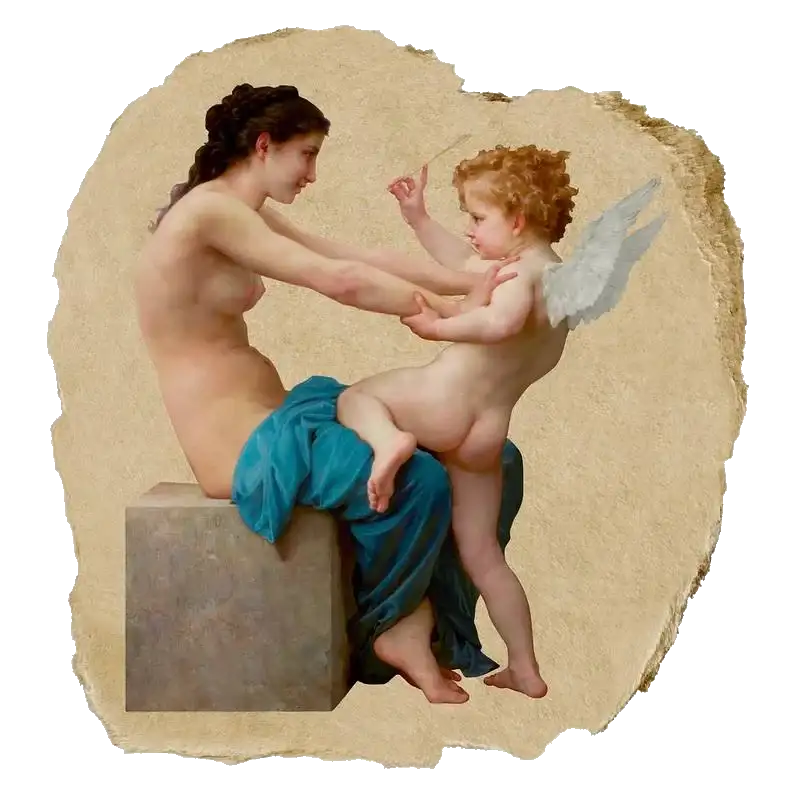


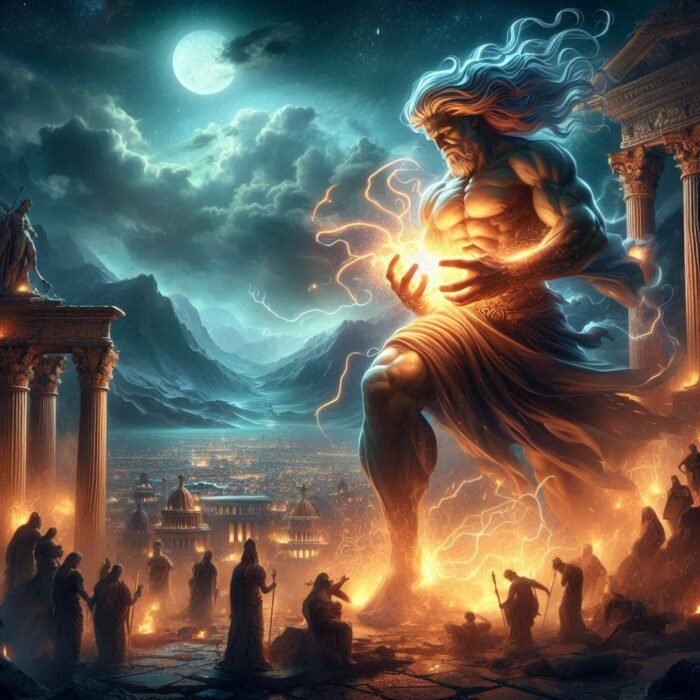

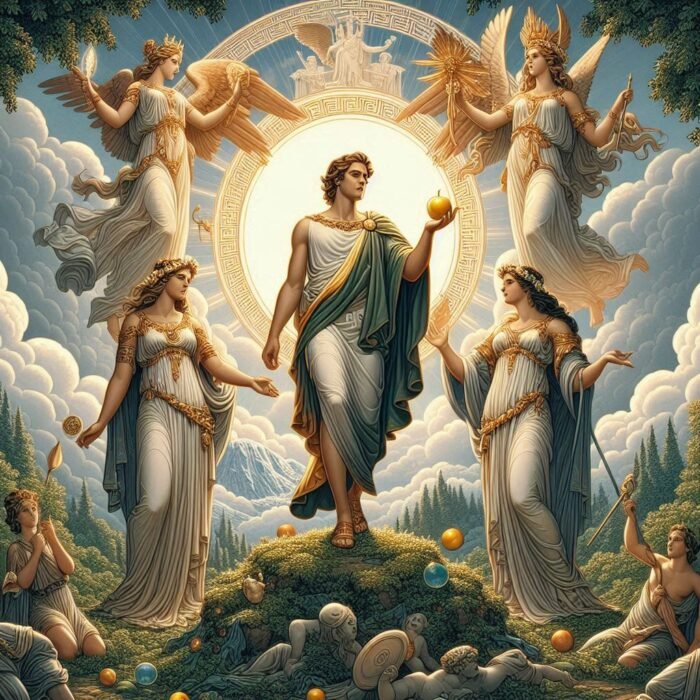




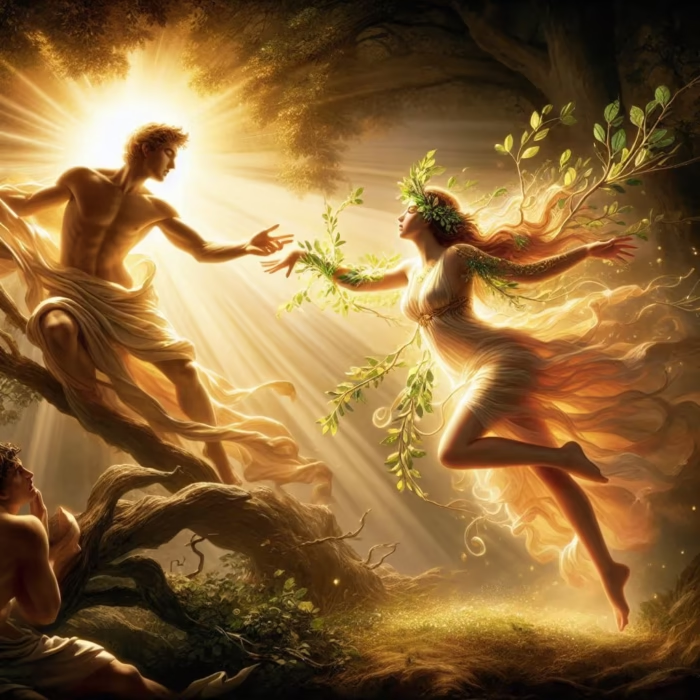
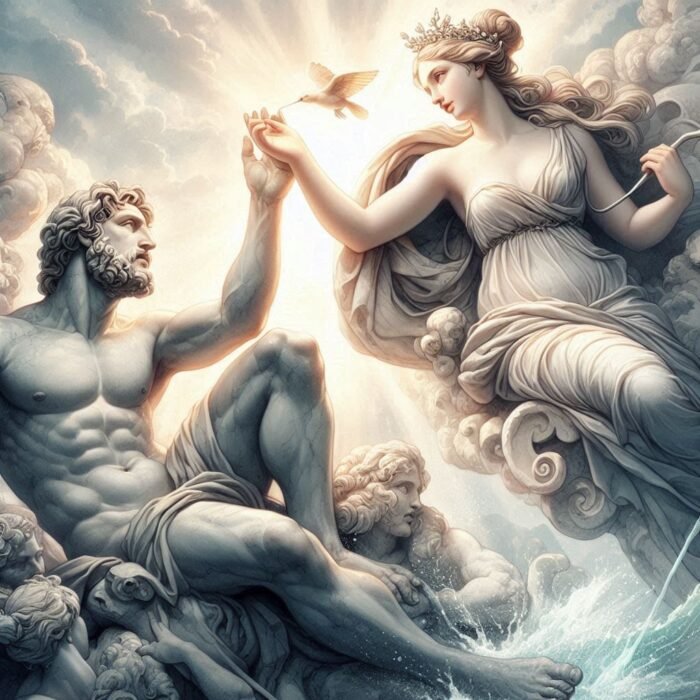


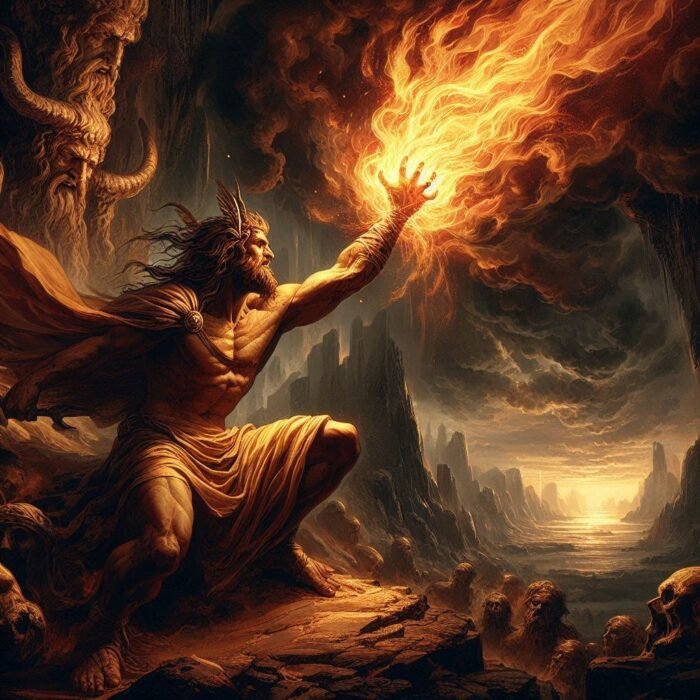
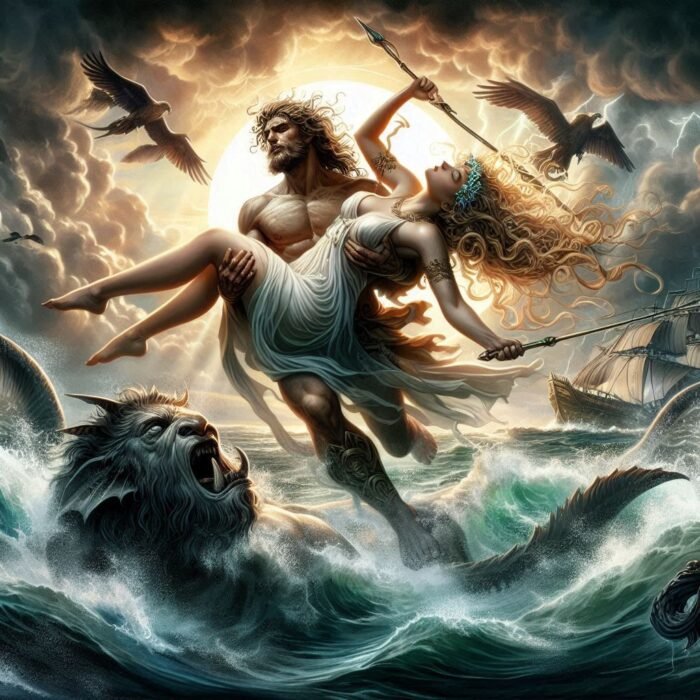

Comments